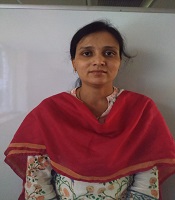Academic Spotlight: Hybrid Density-based Adaptive Clustering using Gaussian Kernel and Grid Search
HPCC Systems has a robust Academic Program that collaborates with colleges, universities, high schools and institutions of higher learning around the world.
One such collaboration with the Rashtreeya Vidyalaya College of Engineering (RVCE) in Bengaluru, India, has resulted in a new publication:
Hybrid Density-based Adaptive Clustering using Gaussian Kernel and Grid Search, published by IEEE Xplore®
Below is the paper abstract:
Density-based spatial clustering of data with noise (DBSCAN) is a popular clustering algorithm that groups data points which are close together using two parameters eps – which is the radius of each cluster, and Minpts, which is the minimum number of points in each cluster. However, the performance of DBSCAN reduces for the datasets with varying density clusters. This paper proposes the implementation of a distributed and adaptive DBSCAN algorithm on the HPCC Systems platform. The proposed approach uses techniques such as grid search and Gaussian kernel to search optimized values for the threshold density of clusters, thus eliminating the requirement for users to specify the parameters. Further, the experimental investigation suggests that proposed ADBSAN performs better compared to existing ADBSCAN implementations using k-dist and Gaussian kernels.
A Collaborative Approach
More information on the Academic engagement with RVCE, including presentations, research projects, blogs and more can be found on the Rashtreeya Vidyalaya College of Engineering Academic Page.
A link to this paper and other academic publications supported by the HPCC Systems project, including additional publications from RVCE, can be found on our wiki.
About the authors:

Dr. G. Shobha is a Professor in the Computer Science and Engineering Department at the RV College of Engineering with teaching experience of 25 years. Her specialization includes Data mining, Machine Learning and Image processing. She has published more than 150 papers in reputed journals / conferences. She has also executed sponsored projects worth INR 200 lakhs funded from various agencies nationally and internationally. She is a recipient of various awards such as Career Award for young teachers 2007-08 constituted by All India Council of Technical Education, Best Researcher award from Cognizant 2017, GHC Faculty Scholar for Women in Computing in 2018, IBM Shared University Research Award in 2019, HPCC Systems community recognition award 2020. Dr Shobha was the recipient of the 2021 HPCC Systems Mentor Badge Award for providing guidance and direction towards the successful completion of intern open source projects.

Jyoti Shetty is an Assistant Professor in the Computer Science and Engineering Department at the RV College of Engineering. In collaboration with students, she has executed several projects on HPCC Systems, including, implementing a distributed DBSCAN, providing evaluation metrics for a clustering algorithm, and IoT plugin for HPCC Systems, an OpenCV interface for HPCC Systems and more. She finds HPCC Systems a simple and powerful open source platform to execute complex real world problems. Professor Shetty was the recipient of the 2021 HPCC Systems Mentor Badge Award for providing guidance and direction towards the successful completion of intern open source projects.

Varsha R Jenni is a 3rd year undergraduate student at the RVCE.
Varsha has interests in machine learning and distributed computing and says she has found HPCC Systems to be ‘a great open source platform which makes data processing analysis easier and faster’.

Akhil Dua is a 3rd year undergraduate student at the RVCE.
Akhil has interests in machine learning application and data analysis and has discovered that HPCC Systems is a great open source platform for building learning models efficiently and accurately.
Roger is a Senior Architect working as the lead on the Machine Learning team at LexisNexis Risk Solutions. Roger has been involved in the implementation and utilization of machine learning and AI techniques for many years, and he has over 20 patents in diverse areas of software technology.
